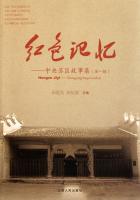At that moment the blithe,fresh voices of children passing the cell struck upon her ear.Whenever children met her eye or ear,the poor mother would cast herself into the darkest corner of her living sepulchre,as if she sought to bury her head in the stone wall that she might not hear them.This time,contrary to her habit,she started up and listened eagerly,for one of them had said:'They are going to hang a gipsy woman to-day.'
With the sudden bound of the spider which we have seen rush upon the fly at the shaking of his web,she ran to her loophole which looked out,as the reader knows,upon the Place de Grève.In effect,a ladder was placed against the gibbet,and the hangman's assistant was busy adjusting the chains rusted by the rain.A few people stood round.
The laughing group of children was already far off.The sachette looked about for a passer-by of whom she might make inquiries.Close to her cell she caught sight of a priest ****** believe to study the public breviary,but who was much less taken up with the lattice-guarded volume than with the gibbet,towards which,ever and anon,he cast a savage,scowling glance.She recognised him as the reverend Archdeacon of Josas,a saintly man.
'Father,'she asked,'who is to be hanged there?'
The priest looked at her without replying.She repeated her question.
'I do not know,'he answered.
'Some children passing said that it was an Egyptian woman,'said the recluse.
'I think it is,'returned the priest.Paquette La Chantefleurie broke into a hyena laugh.
'Listen,'said the Archdeacon,'it appears that you hate the gipsy women exceedingly?'
'Hate them!'cried the recluse.'They are ghouls and stealers of children!They devoured my little girl,my babe,my only child!I have no heart in my body—they have eaten it!'
She was terrible.The priest regarded her coldly.
'There is one that I hate above the rest,'she went on,'and that I have cursed—a young one—about the age my child would be if this one's mother had not devoured her.Each time that this young viper passes my cell my blood boils!'
'Well,my sister,let your heart rejoice,'said the priest,stony as a marble statue on a tomb,'for'tis that one you will see die.'
His head fell upon his breast and he went slowly away.
The recluse waved her arms with joy.'I foretold it to her that she would swing up there!Priest,I thank thee!'cried she,and she began pacing backward and forward in front of her loophole with dishevelled locks and flaming eyes,striking her shoulder against the wall with the savage air of a caged wolf that has long been hungry and feels that the hour of its repast draws near.
Chapter 6-Three Various Hearts of Men
P us,however,was not dead.Men of his sort are not so easily killed.When M re Philippe Lheulier,the King's advocate extraordinary,had said to poor Esmeralda:'He is dying,'it was by mistake or jest.When the Archdeacon said to the condemned girl,'He is dead!'the fact is that he knew nothing about it;but he believed it to be true,he counted upon it,and hoped it earnestly.It would have been too much to expect that he should give the woman he loved good tidings of his rival.Any man would have done the same in his place.
Not indeed that P us's wound had not been serious,but it had been less so than the Archdeacon flattered himself.The leech,to whose house the soldiers of the watch had conveyed him in the first instance,had,for a week,feared for his life,and,indeed,had told him so in Latin.But youth and a vigorous constitution had triumphed,and,as often happens,notwithstanding prognostics and diagnostics,Nature had amused herself by saving the patient in spite of the physician.It was while he was still stretched upon a sick-bed that he underwent the first interrogations at the hands of Philippe Lheulier and the examiners of the Holy Office,which had annoyed him greatly.So,one fine morning,feeling himself recovered,he had left his gold spurs in payment to the man of drugs,and had taken himself off.For the rest,this had in no way impeded the course of justice.The law of that day had but few scruples about the clearness and precision of the proceedings against a criminal.Provided the accused was finally hanged,that was sufficient.As it was,the judges had ample proof against Esmeralda.They held P us to be dead,and that decided the matter.
As to P us,he had fled to no great distance.He had simply rejoined his company,then on garrison duty at Queueen-Brie,in the province o e de France,a few stages from Paris.
After all,he had no great desire to appear in person at the trial.He had a vague impression that he would cut a somewhat ridiculous figure.Frankly,he did not quite know what to make of the whole affair.Irreligious,yet credulous like every soldier who is nothing but a soldier,when he examined the particulars of that adventure,he was not altogether without his suspicions as to the goat,as to the curious circumstances of his first meeting with Esmeralda,as to the means,no less strange,by which she had betrayed the secret of her love,as to her being a gipsy,finally as to the spectre-monk.He discerned in all these incidents far more of magic than of love—probably a witch,most likely the devil;in fine,a drama,or in the language of the day,a mystery—and a very disagreeable one—in which he had an extremely uncomfortable part:that of the person who receives all the kicks and none of the applause.The captain was greatly put out by this;he felt that kind of shame which La Fontaine so admirably defines:
'Ashamed as a fox would be,caught by a hen.'















